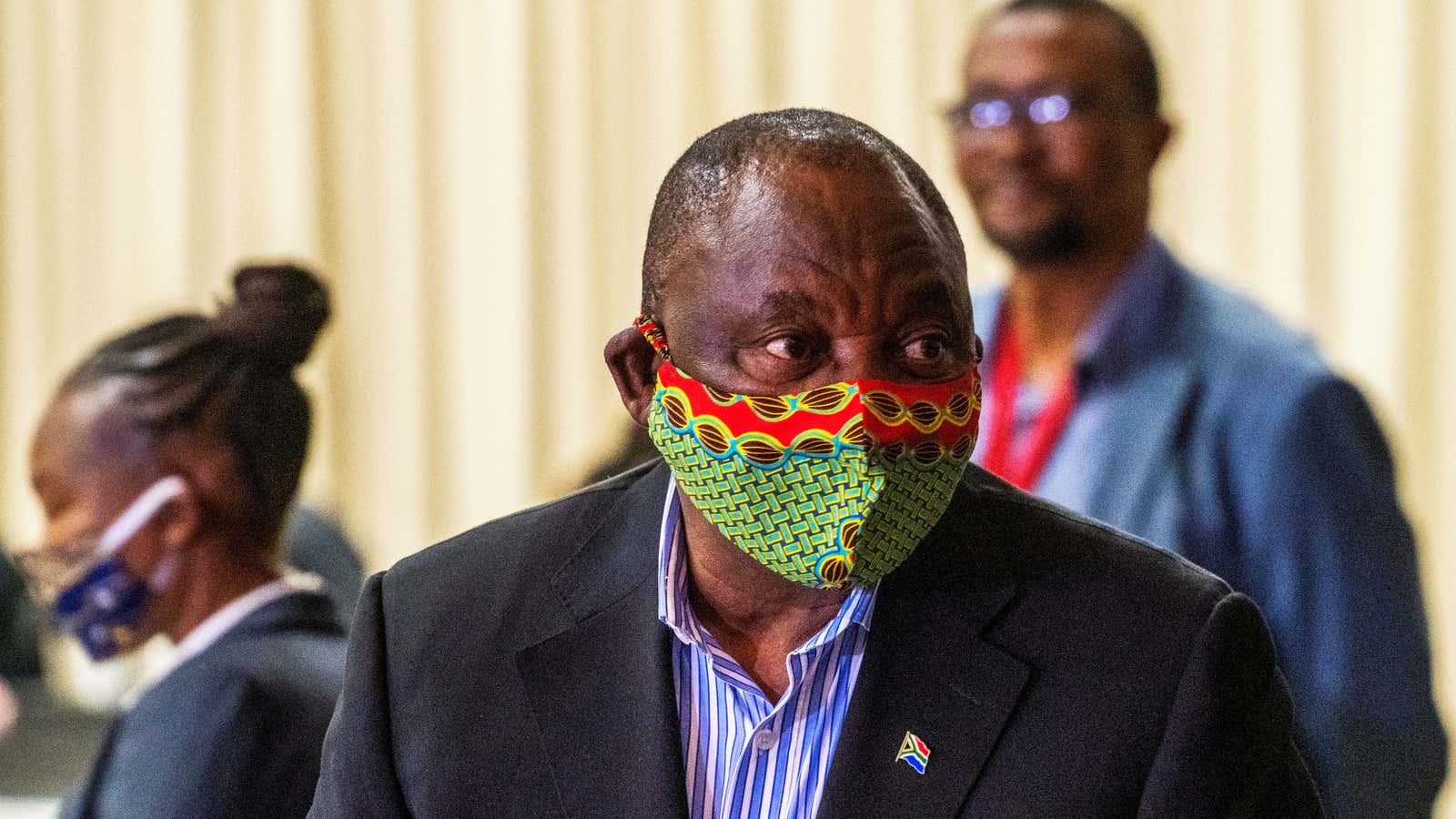This story has been updated with news of WHO’s classification of the variant.
The World Health Organization met on Friday (Nov. 26) to discuss a new covid-19 variant that’s been detected in southern Africa, determining it to be “of concern.” Cases of B.1.1.529 (called the omicron variant) have been seen in Botswana and South Africa, as well as in Hong Kong and Israel.
Several countries swiftly responded by shutting their borders to travelers from the southern Africa region. The UK was the first, severely restricting travel from six southern African countries—South Africa, Namibia, Lesotho, Botswana, Zimbabwe, and Eswatini. The EU also proposed to “stop air travel from the southern African region due to the variant.” The US will restrict travel from eight African countries, including South Africa, from Monday. At time of writing, there are around a few dozen confirmed cases of the B.1.1.529 variant, largely in southern Africa.
What is the impact of the omicron variant on southern Africa?
Fears of a fourth wave of infections and deaths in southern Africa have been stoked by the new variant, which is suspected to be more transmissible than previous versions because of its double mutation characteristics.
Covid-19 cases had been declining across Africa in the past few months.However, the discovery of the B.1.1.529 variant coincides with a fresh spike in covid-19 cases in Gauteng, South Africa’s key economic province. This has put regional neighbors such as Zimbabwe, Zambia, and Malawi on notice of new waves of infections and possible deaths ahead of the festive season.
South African health minister Joe Phaahla said the omicron variant was “concerning for predicted immune evasion and transmissibility.” On Nov. 25, South Africa recorded an increase of 2,465 cases within 24 hours, bumping up the tally of confirmed cases for the country to almost 3 million. As many as 114 deaths were also reported for the same day, raising the total number of officially recorded deaths from coronavirus in South Africa to nearly 90,000.
What does the World Health Organization say?
Less than 10% of African countries are expected to hit a year-end target of fully vaccinating 40% of their people, according to WHO, as the region battles rising demand for essential vaccination commodities, such as syringes.
“South Africa has moved swiftly to identify the B1.1.529 variant. This is an impressive display of its surveillance and genome sequencing strength,” Matshidiso Moeti, WHO regional director for Africa, said. “Speed, science and transparency will defeat covid-19.”
But of pressing concern is the fact that only one in four healthcare workers has been fully vaccinated against covid-19.
“With a new surge in cases looming over Africa following the end-of-year festive season,” says Moeti,”countries must urgently speed up the rollout of vaccines to healthcare workers.”
Sign up to the Quartz Africa Weekly Brief here for news and analysis on African business, tech, and innovation in your inbox.
